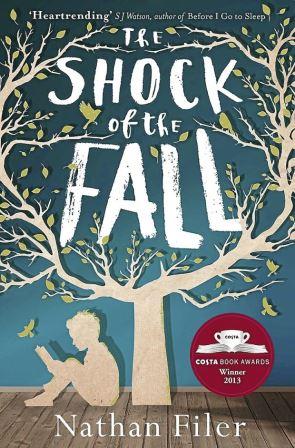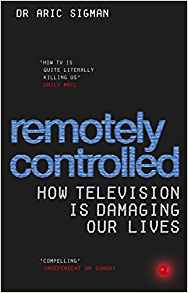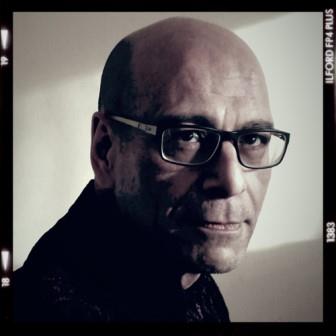
Sleep. We know we need it, yet most of us probably don’t get enough of it.
As a society I think we’re probably pretty good at ruefully acknowledging the why we don’t get enough: maybe we had to stay up late to prepare for an important presentation the next day; maybe we work long, late shifts; or maybe the newest member of our family is disrupting our sleep. We acknowledge we aren’t feeling our best, but we shrug it off, maybe grab a coffee or two to keep us going, and continue trudging along the same under-slept path.
What we are terrible at is understanding the consequences of our under-sleeping, both at a personal level and for society as a whole.
‘Routinely sleeping less than six or seven hours a night demolishes your immune system’
Matthew Walker plans to change that, because maybe, just maybe, if we can understand how fatal the consequences of under sleeping can be, we might all be aiming to spend much more time asleep.
What’s it about?
Matthew Walker, neuroscientist and sleep expert, wants us all to understand the benefits of sleep and dreams, the dangerous consequences of denying ourselves the sleep we need, and to fall in love with sleep.
To achieve this he first examines what sleep is and what dreams do, then looks at how your body responds to major and minor sleep deprivation. Finally he discusses society wide sleep issues and suggests some possible solutions.
What’s it like?
Fascinating. Compelling. Frequently frightening. As early as the second paragraph of the introduction, Walker briskly informs us that, ‘Routinely sleeping less than six or seven hours a night demolishes your immune system, more than doubling your risk of cancer. Insufficient sleep is a key lifestyle factor determining whether or not you will develop Alzheimer’s disease.’
Those are two diseases I would certainly like to avoid, and yet I found myself reading those sentences as the clock’s hand moved steadily towards 1 a.m…then heading to social media to share them, all the while knowing that I would need to get up around 6 a.m. (I think from this it’s clear already that I have insufficient respect at times for the healing balm of sleep!)
Chronically sleep deprived
Did you know that the Guinness book of records no longer accepts attempts to break the sleep deprivation record? In fact, later editions of the book don’t include the record at all. It seems they think sleep deprivation potentially more fatal than allowing people to (for instance) free fall from space through the sound barrier (in an astronaught suit, obviously!)
I thoroughly enjoyed reading about what sleep is, how it works and related phenomena, like what happens to people who can’t dream. Walker explains ideas clearly and in an accessible manner. His final section explores issues including American residency programmes for training medics and school start times for teens (why on earth do American schools start so horrendously early?) and is equally fascinating, and a good starting point to think about potential social changes.
A sleep sick society
Is Walker right to think we can fix this? Could increasing our awareness of the shocking consequences of even relatively small amounts of under-sleeping help to heal a sleep sick society? Perhaps.
Once upon a time, no-one thought anything of drink-driving. Now, most people would not do it, (though there is still too little awareness of the dangers of morning-after-drinking-driving, when blood alcohol levels can still be surprisingly high,) and those who boast about their suppposed skill in still driving around while under the influence are in a minority.
an under-slept driver may unknowingly experience an unavoidable micro sleep at the wheel and never brake at all.
I have always been conscious of the dangers of driving tired and will usually use public transport, walk or reschedule where possible to avoid potentially endangering myself and others, when I feel too under-slept, but it was still sobering to learn that drunk drivers are arguably safer than under-slept drivers.* To paraphrase Dr Walker: a drunk driver will be slow to brake if someone were to run out in front of them; an under-slept driver may unknowingly experience an unavoidable micro sleep at the wheel and never brake at all.
Currently my attitude towards sleep and driving is an anomaly. Could we one day move forward as a society to the point where it’s perceived as completely normal to have a work colleague arrive at work in a taxi and explain, “I was too tired to drive myself this morning”? (Or perhaps we will all be ensconced in driverless cars and thus render the above point irrelevant…)
I’m aware that my thoughts are wandering a little here, but this is exactly what Walker wants us to do: to ponder, speculate and review the current status quo, asking always, how can we make our lives better by ensuring sufficient sleep quantity and quality for everyone?
Final thoughts
Even if you think you sleep well, you should definitely read this. Whether you want to be healthier, happier or just live to a decent age without forgetting who you are, sleep is a big part of the answer. (Could helping elderly people increase the quality and quantity of their sleep help to slow down the progress of diseases like Alzheimers? Early evidence suggests this could be the case.)
The fact that I’m writing this review while bleary eyed with tiredness suggests that ‘Why We Sleep’ hasn’t completely cured me of my tendency to deprioritise sleep, but I can assure you that it has helped! I would like to say that a deeper understanding of sleep’s restorative functions has increased my willpower sufficiently to resist the lure of a late night book…or the pressing call of the laundry…but the truth is that sometimes I need to unwind after a long day and sometimes the kids really do need clean clothes for school tomorrow. I am still learning to make sleep a priority, but if you read this, I am certain that you’ll want to do the same!
Highly recommended.
‘Why We Sleep’,
Matthew Walker,
2018, Penguin Books, paperback
* OBVIOUSLY no-one is suggesting that drunk driving is safe or sensible.


